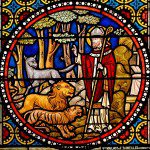Yesterday I published a guest post by an academic who grew up in a progressive church. She wrote about the role religion can play in sustaining people in the face of bigotry or oppression. She noted that she is not religious. Neither am I, though I once was. But not being religious does not mean not having stories. It doesn’t mean not having heroes. We do have stories, and we do have heroes.
“I wish it need not have happened in my time,” said Frodo. “So do I,” said Gandalf, “and so do all who live to see such times. But that is not for them to decide. All we have to decide is what to do with the time that is given us.”
In the wake of Trump’s elections last week, some of my friends shared memes and quotes from Harry Potter. Others shared the same from the Lord of the Rings. Some were not impressed. You know those stories are fiction, right? Yes. Yes we do. And we don’t care. Myth has been a part of human society since its inception. We tell stories. Stories have meaning. Stories matter. Stories inspire change.
“Dark and difficult times lie ahead. Soon we must all face the choice between what is right and what is easy. But remember this, you have friends here. You’re not alone.” ~ Dumbledore
Oh, I’m not saying our stories fix everything. The victims of genocide have stories. Those who are defeated in war and suffer pillage and destruction have stories. Those who have suffered horrors unimaginable have stories, too. But stories are still powerful. Stories still matter. Stories sustain us, nurture us, inspire us.
“Do you mind if I tell you a story? One you might not have heard. All the elements in your body were forged many many millions of years ago in the heart of a faraway star that exploded and died. That explosion scattered those elements across the desolations of deep space. After so, so many millions of years, these elements came together to form new stars and new planets. And on and on it went. The elements came together and burst apart, forming shoes and ships and sealing wax and cabbages and kings. Until, eventually, they came together to make you. You are unique in the universe. There is only one Merry Galel. And there will never be another.” ~ The Doctor
When I was became Catholic, I had to choose a confirmation saint. Having grown up in an evangelical family, this was brand new to me. I bought a book of saint’s lives, and began reading. And I realized. I realized that for centuries, Catholics shared stories of saints. They found saints they identified with, they took courage in the troubles saints’ overcame, they drew strength from their stories.
“Miss no single opportunity of making some small sacrifice, here by a smiling look, there by a kindly word; always doing the smallest right and doing it all for love.” ~ St. Therese of Lisieux
I grew up in an evangelical home. We didn’t have saints. Instead, we read missionary stories—and the same thing was true. These stories had meaning. They filled me with a sense of purpose and inspired me to reach further, to try harder, to be more. I identified with Mary Slessor. I admired Gladys Alward. I was inspired by Amy Carmichael. If they could overcome what they did—if they could make the difference they did—then maybe I could too.
“When you think of the woman’s power, you forget the power of the woman’s God. I shall go on.” ~ Marry Slessor
My daughter is still young, but she is quickly compiling her own list of heroes. Her list is different from my own childhood list. Anne Frank. Mary Anning. Ruby Bridges. Marie Curie. Florence Nightingale. Marian Anderson. She devours books full of stories about girls who changed the world—girls who rebelled against cultural norms—girls who made a difference. She, too, has heroes—and stories.
“It’s difficult in times like these: ideals, dreams and cherished hopes rise within us, only to be crushed by grim reality. It’s a wonder I haven’t abandoned all my ideals, they seem so absurd and impractical. Yet I cling to them because I still believe, in spite of everything, that people are truly good at heart.” ~ Anne Frank
These heroes are not fictional, no, but others are. I just finished reading a book of Greek mythology to my daughter. She was riveted. Artemus, Prometheus, Perseus, Atalanta. Classical mythology is not a canon of what happened and what didn’t but rather a collection of sometimes conflicting stories told and embellished and retold in various communities. Humans have always told stories, even as the values and beliefs that undergird these stories have changed over time.
“Gilgamesh, where are you hurrying to? You will never find that life for which you are looking. When the gods created man they allotted to him death, but life they retained in their own keeping. As for you, Gilgamesh, fill your belly with good things; day and night, night and day, dance and be merry, feast and rejoice. Let your clothes be fresh, bathe yourself in water, cherish the little child that holds your hand, and make your wife happy in your embrace; for this too is the lot of man.” ~ The Epic of Gilgamesh
As a child, I sometimes asked if a story was a “true” story. When my own daughter asks me this today, I tell her that all stories are true, in some sense—all stories speak to the depth of human experience, to our fears and hopes, our dreams and worries. She rolls her eyes and tells me she was asking whether the story actually happened, but my point remains. Stories have meaning whether they happened or not.
“I stopped believing there was a power of good and a power of evil that were outside us. And I came to believe that good and evil are names for what people do, not for what they are. All we can say is that this is a good deed, because it helps someone, or that’s an evil one, because it hurts them. People are too complicated to have simple labels.” ~ His Dark Materials
Yes, most stories have happy endings, and real life does not. Anne Frank really died. It’s tempting to want to wrap everything up with a neat and tidy bow, to pretend everything will turn out alright if we just hope hard enough. We want to know that good will win. But stories are made of more than that. Stories encourage us to persevere even when things are difficult. They give us courage, and resilience.
With one sweep of my arm, I push her behind me. “I volunteer!” I gasp. “I volunteer as tribute!”
Those who tell stories—and those who draw comfort and inspiration from them—don’t always know how things will turn out in their own lives. During the antebellum period, African slaves in the American South called Harriet Tubman Moses. They drew on the Old Testament to keep going, even when all looked bleak. They told stories. They sang songs. Stories can sustain people even when everything seems to be going wrong. Stories have power.
“When Israel was in Egypt’s land:
Let my people go,
Oppress’d so hard they could not stand,
Let my People go.
Go down, Moses,
Way down in Egypt’s land,
Tell old Pharaoh,
Let my people go.”
Finding solace in quotes from Harry Potter or the Lord of the Rings does not mean we think stories are always neat and tidy, or that we fancy ourselves in equivalent situations. It means that stories have still meaning. It means that stories still comfort us, inspire us, sustain us, and empower us. Even stories that aren’t “true” stories draw on a deep well of human emotion and human experience. Stories have power.
“The man that I named The Giver passed along to the boy knowledge, history, memories, color, pain, laughter, love, and truth. Every time you place a book in the hands of a child, you do the same thing. It is very risky. But each time a child opens a book, he pushes open the gate that separates him from Elsewhere. It gives him choices. It gives him freedom. Those are magnificent, wonderfully unsafe things.” ~ Lois Lowry
What stories are you telling? What stories do you find meaningful?















